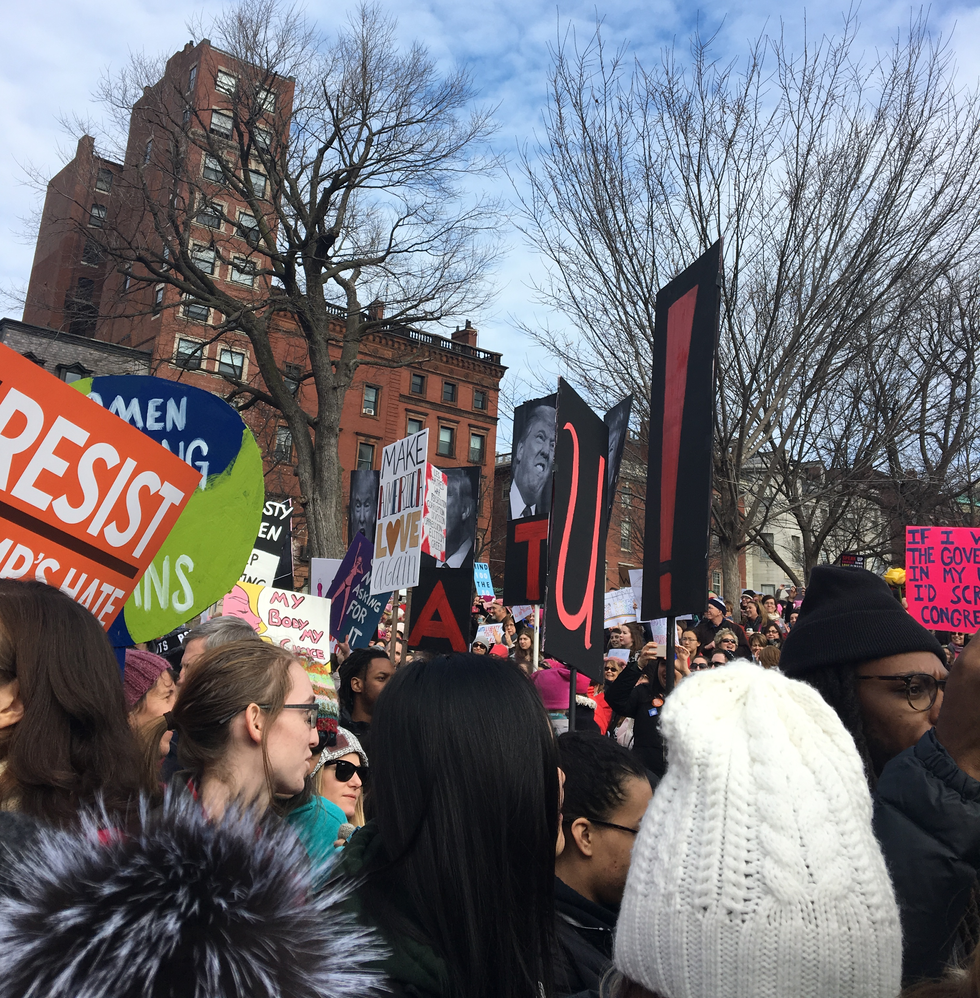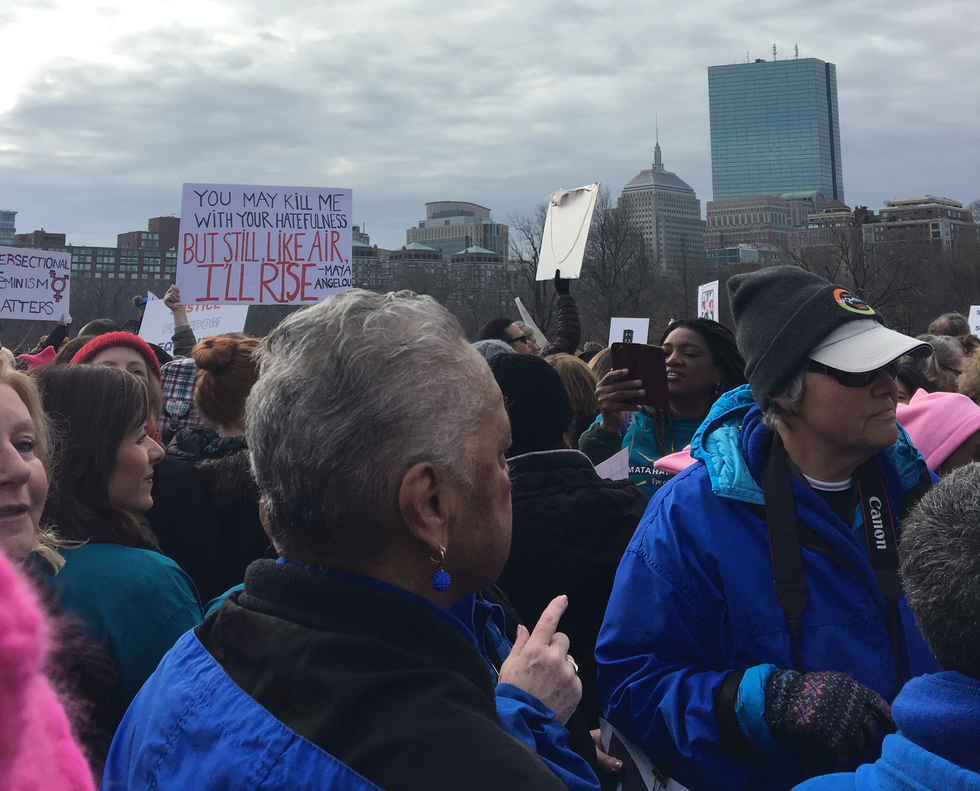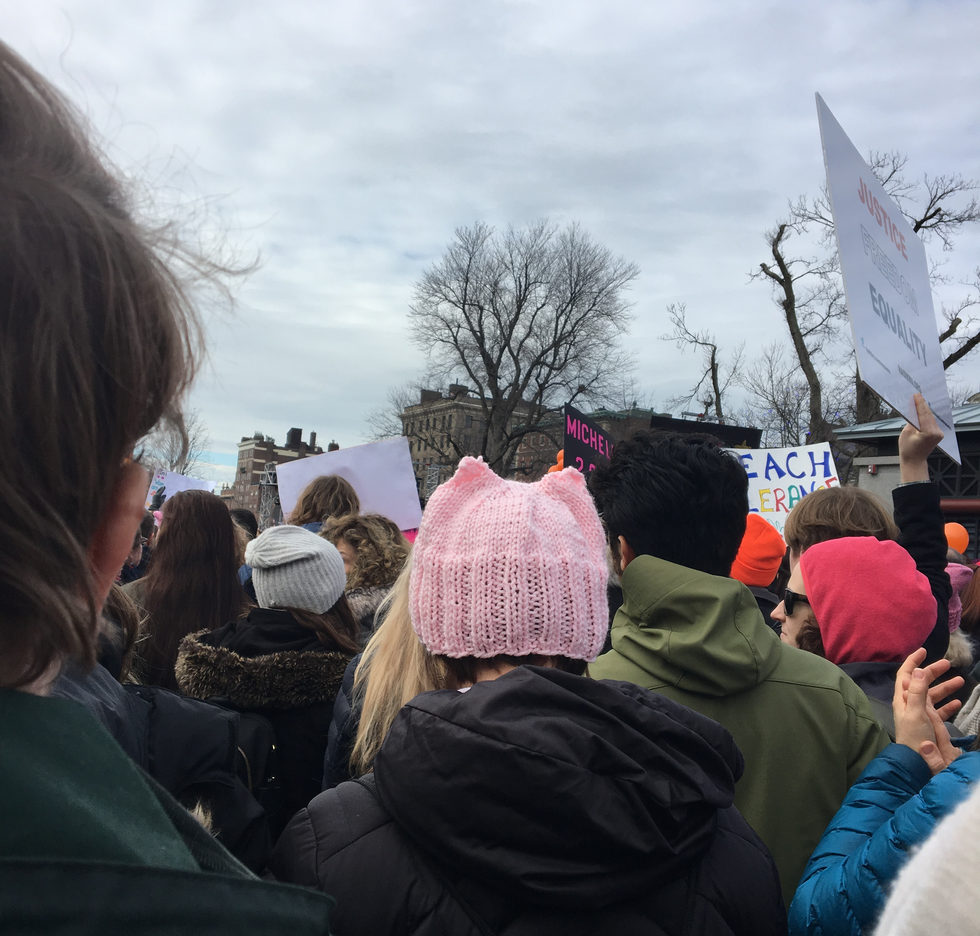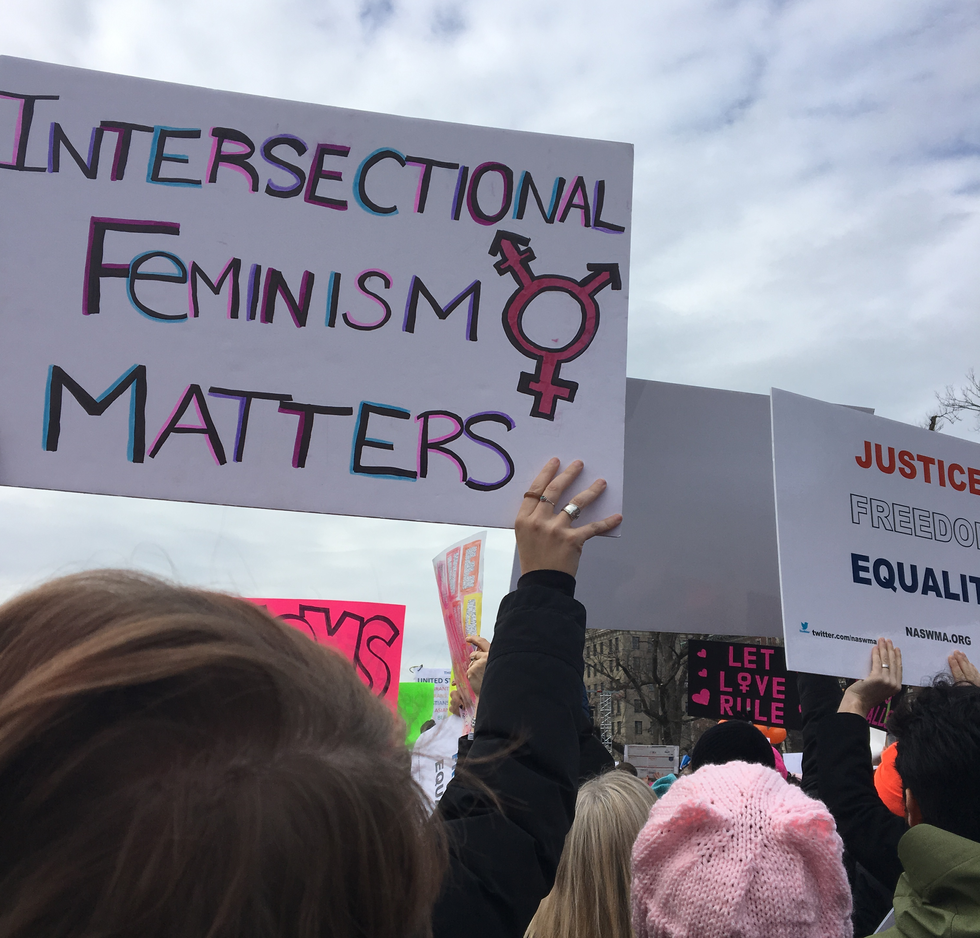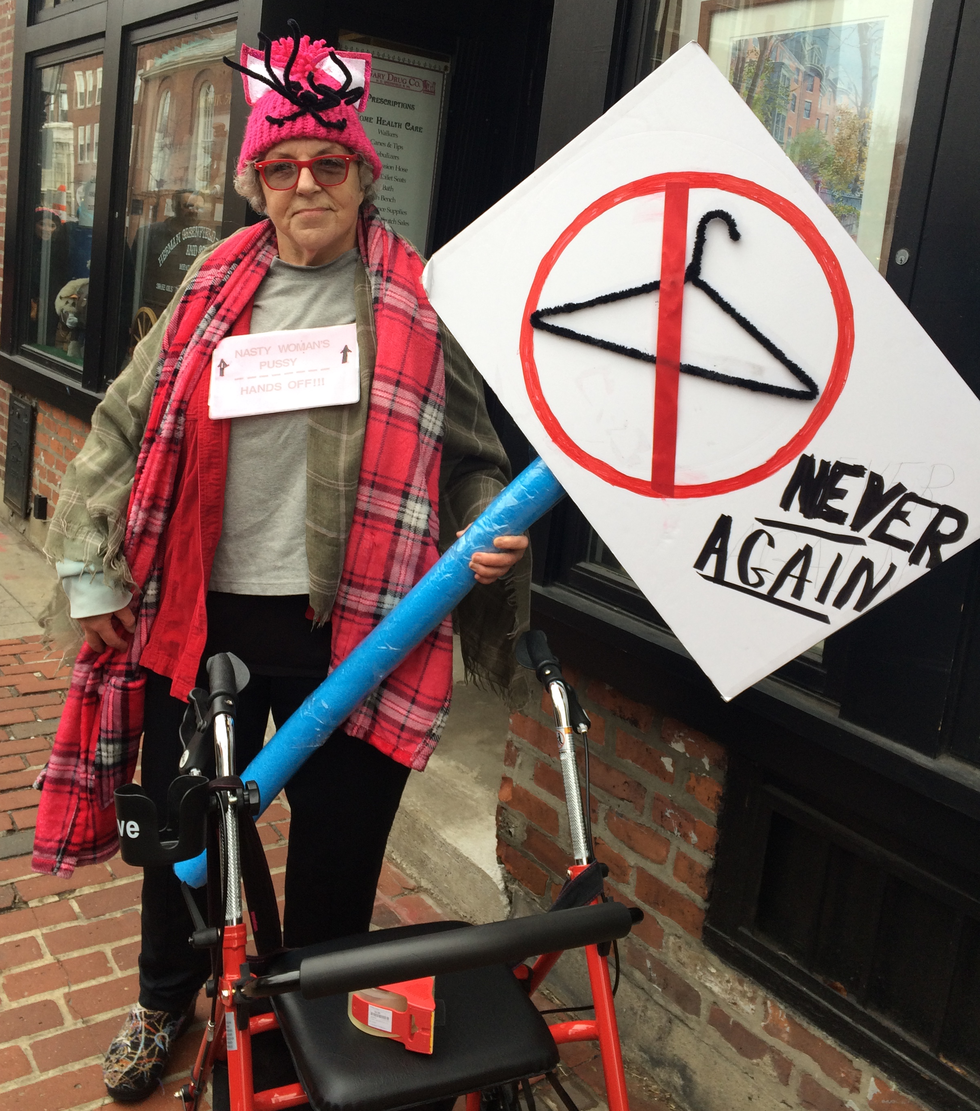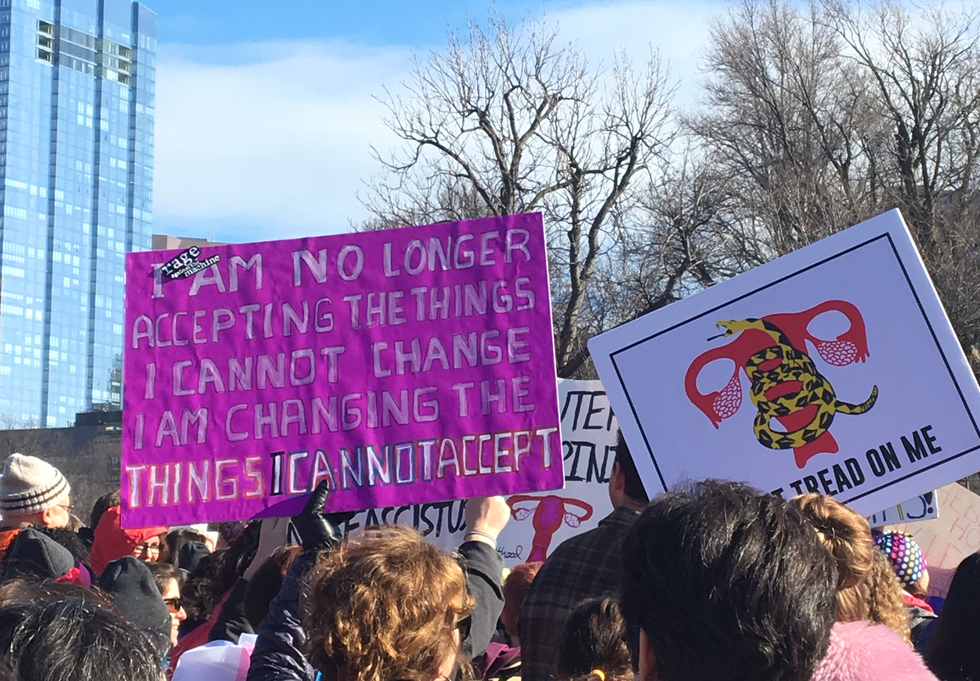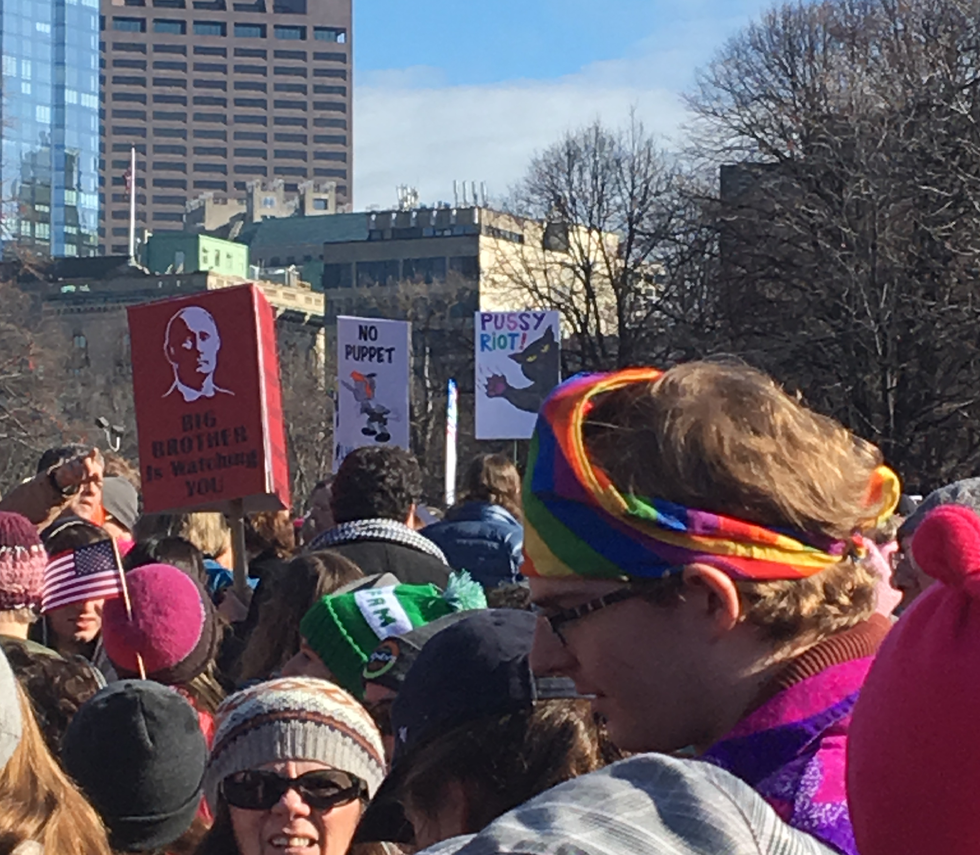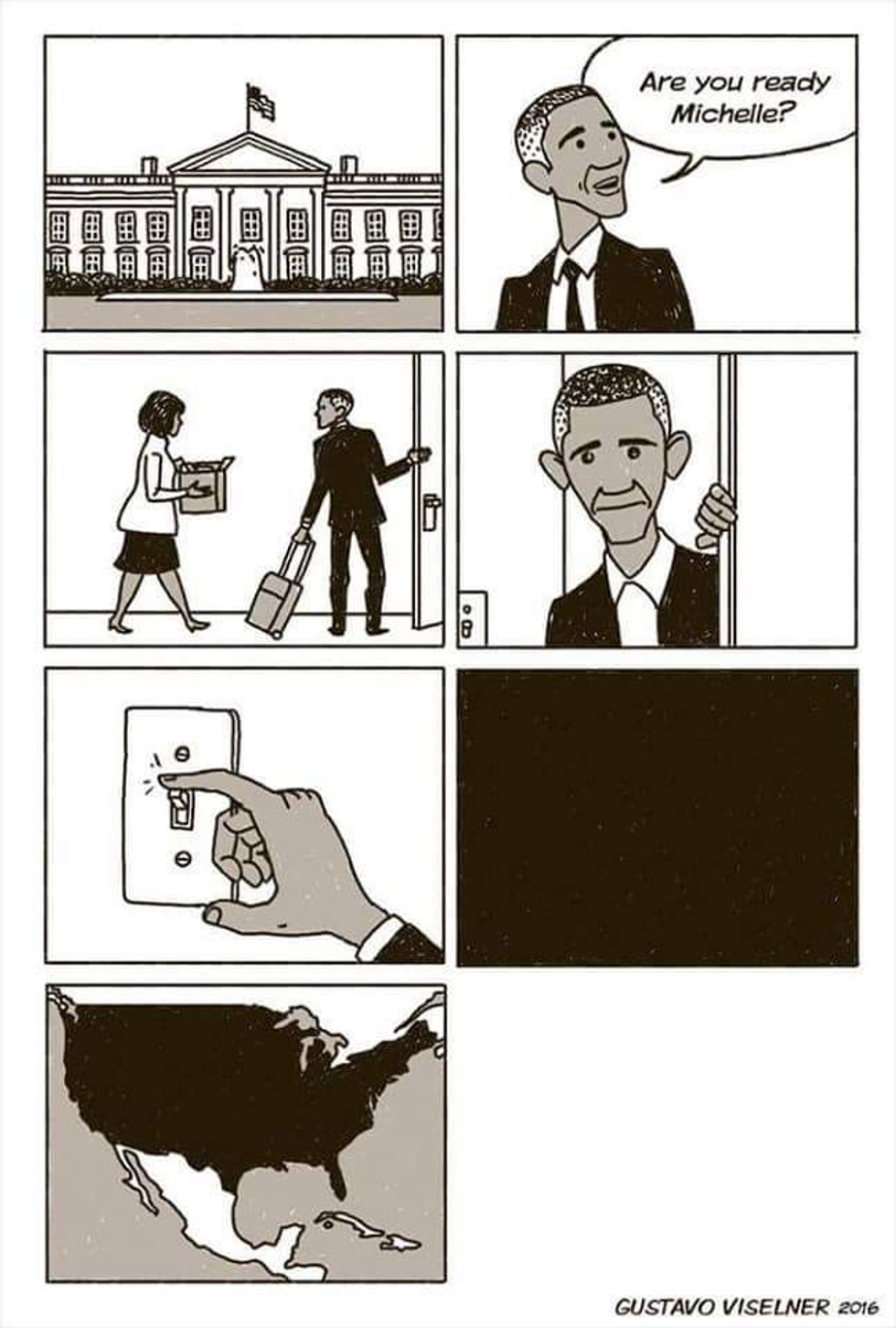More than 100,000 women and men of all ages and professions came together in the Boston Common for the Women’s March on Boston, the second largest after Washington D.C. itself. Standing among them, I felt a great sense of hope and inspiration. I only knew one of those faces around me, but I felt connected to every one of them. A women’s choir harmonized a version of “America the Beautiful” in which "brotherhood" was replaced by "sisterhood," showing that the smallest of changes can make the biggest of differences. For me, it was one of the rare times in my life, likely even rarer for a woman of color, that I knew myself to be strong, powerful, beautiful and have complete confidence in myself as a female. It seemed like we were carrying on the traditions of the women’s suffrage movement and engaging with a past that the men in charge in D.C. seem to have forgotten: the strength and pull of assembled women.
While speakers ranging from Elizabeth Warren and Marty Walsh to average Bostonian women and poets took the stage, I looked around around me at the knitted pussy hats, the signs for all kinds of social movements and female faces looking ready to fight. Speakers gave us messages to hold onto, “this day is about unity and solidarity,” “this democracy is only as strong as we are engaged,” and “freedom is our agenda.” My personal favorites that still echo in my ears days after are “Democracy does not stop at the ballot box because dissent is patriotic” and “I have a message for Donald Trump from the people of the state of Massachusetts: we’ll see you in court.”
Massachusetts itself has been at the forefront of positive change in the United States, including LGBTQ rights and raising minimum wage. Boston has roots in the American Revolution itself. Standing there in the crowd, I knew that we would be among the first to fight if President Trump and his team tried to take away our rights or make us out to be lesser citizens. The fight has only begun for BLM, feminism and workers’ unions for fair wages and fair treatments. For human rights. We refuse to go back. Many made signs to capture that fighting spirit and commitment. Some of them I didn’t manage to snap a picture of were:
Keep your tiny hands off my rights.
I didn’t come out of the closet for this.
This pussy has claws.
Viva la vulva.
You have the right to remain outraged.
Respect existence or expect resistance.
And more concisely: This is very bad.
There were so many people there that day, that we did not even all get a chance to march. It was one of the best problems to have, really. The main event organizer admitted sheepishly that she had hoped for 25,000 at most, a goal far surpassed days before the event. Despite that, I could see helicopters hovering around us. I could see news vans and reporters. We were sending a message, with or without a formal march, along with many other cities across America. We are here. We are not standing down. We will fight.
We are snowflakes, as Trump supporters say, but made of iron. We’re all different, but we move together. We know that when one of us falls, we all fall. Snowflakes are the best metaphor for this movement, one that unites people of all kinds, even though it was given quite unintentionally. Those who oppose us I would challenge to continue calling us names and trying to minimize our power. We will take it and turn it into something beautiful and strong. We will continue to move forward and protect one another through these four years, building bridges instead of walls. Because that is who America is and should be.
“It is better to light a candle than curse the darkness,” as it is believed Eleanor Roosevelt once said. That is what we intend to do, and it will be quite the sight of American pride.




